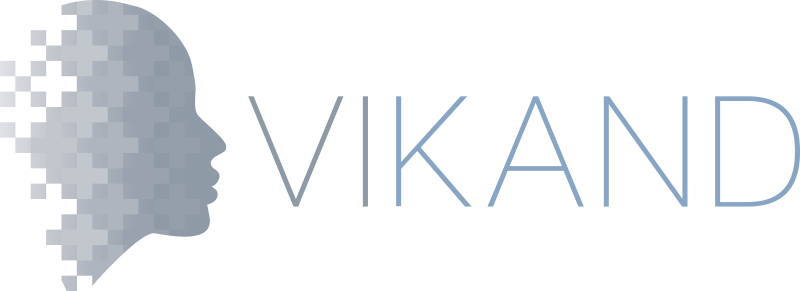
Meet Your ESG Goals at Sea With a Total Healthcare Solution
As with many other sectors of the global economy, maritime has its own Environmental, Social and Governance (ESG) goals aimed at increasing sustainability and minimising its negative impact on both people and the planet. ESG goals for maritime operators include initiatives such as decarbonising operations, increasing regulatory compliance and prioritising crew wellbeing.
However, the social aspect of ESG – the ‘S’ – is integral to human sustainability, and where VIKAND believes our total healthcare solution can have a major impact.
“Shipping’s most important asset is its people, and ensuring they are fit in both body and mind is essential to achieving environmental and governance goals,” says Peter Hult, CEO of VIKAND. “Seafarers with access to proper ongoing training, a defined career path and good onboard facilities will be motivated to carry out their duties diligently.”
Social sustainability initiatives include eliminating abusive labour practices, providing sufficient training, investing in health and safety measures, protecting human rights and workplace equality, and promoting diversity and inclusion in hiring and promotions.
The Importance of Social Investment
While sustainability is a prevalent topic in the maritime industry, the focus often leans toward environmental concerns, especially under the pressure to decarbonise. However, social sustainability is just as, if not more, important to the industry’s future. After all, of what value is an ethically managed company with carbon-neutral ships if no seafarers are willing to work for it? This is the foundation of VIKAND’s crew asset management approach.
As we explored in this article on maritime health and safety, seafarers who work in an environment that proactively supports their wellbeing are less likely to cause – or suffer from – accidents, injuries and illness, all of which can compromise operations. Maritime companies that want to see fewer incidents, costly diversions and lost productivity have many options for investing in their crew’s social wellness, including better nutrition, sleep, exercise, air quality, healthcare access and more.
What Does Social Sustainability Look Like?
To effectively address the social dimension of ESG, maritime operators must consider several components that directly impact seafarer wellness. At VIKAND, we view these as key components of a total healthcare solution.
- Physical Wellbeing: This encompasses more than just the absence of illness. Physical wellbeing is impacted by every aspect of life onboard, including daily tasks, living conditions, food, relationships, rest and recovery time, and more. Assessing physical wellness requires a holistic understanding of how each of these impacts seafarer health and productivity. For example, sleep deprivation is a significant issue on ships, as research shows that 25% of marine accidents are attributed to fatigue. Quiet, comfortable sleeping quarters can help mitigate this risk. Promoting physical wellness may also include managing chronic conditions, improving food and air quality, providing exercise options and more.
- Mental Wellbeing: Mental health is a critical component of social sustainability in the maritime industry, as seafarers are more susceptible to mental health issues than the general population. They face long-term separation from home, social isolation, confined living conditions, limited shore leave and an intense work environment. Women in particular face higher incidents of bullying and harassment, assault, privacy intrusions, job insecurity and worse. Taking measures to combat these issues is one way to support mental health, along with wellness checks and mental health training and awareness programs. Even simple steps like better food and social activities can improve crew satisfaction and retention, which directly supports a company’s long-term sustainability.
- Proactive Healthcare: Reactive healthcare (i.e. addressing health issues after they arise) results in higher costs, productivity disruptions and increased turnover. But a proactive care model delivers exponential benefits to all stakeholders. By prioritising proactive care, maritime companies can significantly reduce workforce churn, enhance crew well-being and ensure a healthier, more resilient crew. A proactive approach to seafarer health has many social benefits to both the crew and company, as healthy, satisfied workers are more productive and less likely to leave, which lowers the cost of recruitment and training.
- Ship-to-Shore Communication: Staying connected with family and friends helps alleviate the challenges of being away from home. Beyond keeping in touch, though, communications technology can support shared activities like sports broadcasts, contributing to a healthier social environment, which is critical for workers living far from home in isolation for months at a time. Ship-to-shore communication technologies can buttress a more supportive social environment onboard and help seafarers feel more connected to the world beyond their ship.
Healthcare is the Heart of Social Sustainability
While decarbonisation and digitalisation are driving a more sustainable maritime industry, we must not forget the ‘S’. Social sustainability is a broad umbrella that calls for a holistic, proactive approach to human wellbeing – precisely what VIKAND means when we say “Total Healthcare Solution.” Emphasising active prevention and early intervention supports health, sustainability and operational efficiency.
For maritime companies to truly meet their social sustainability goals, they need integrated strategies for keeping crew members healthy, happy and engaged. That means proactive investments in their physical and mental fitness, and enhancing the worker experience in every way possible, from food and sleep to connectivity.
This is the path to long-term human sustainability, and how we transform some of the hardest jobs on earth into safe, fulfilling and engaging careers.


